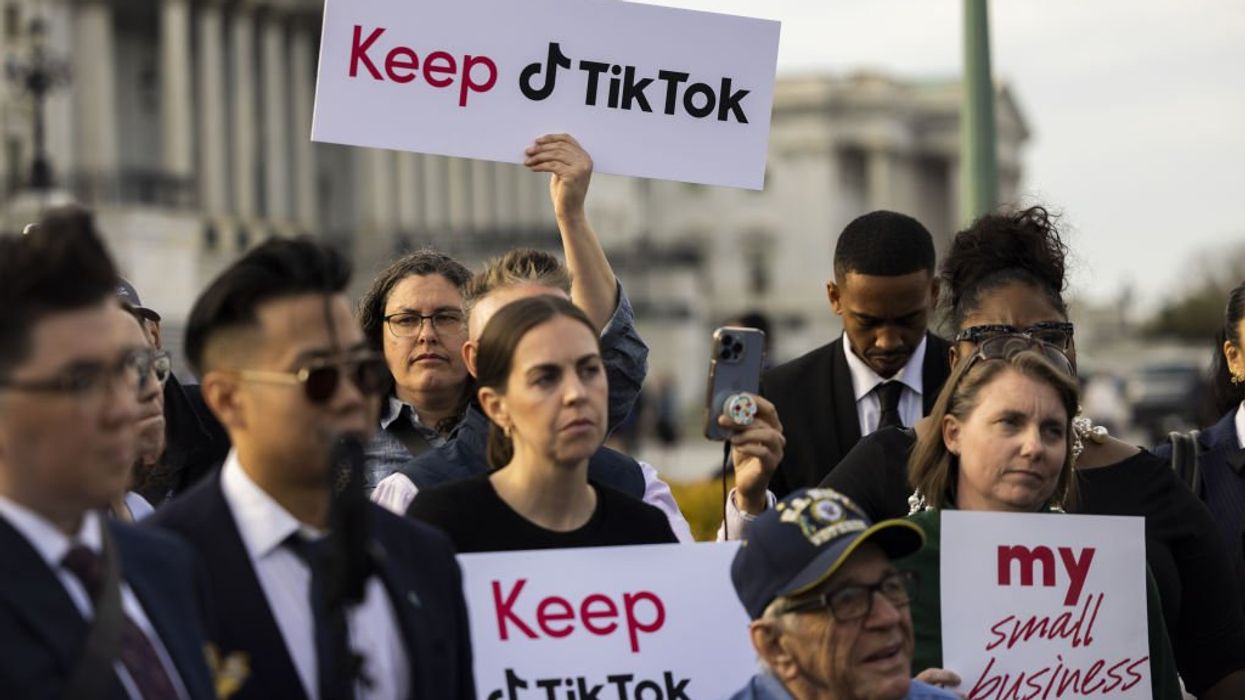
Nathan Posner/Anadolu Agency/Getty Images

Whether in the form of a ban from app stores or a forced divestiture by the U.S. government, the attack on TikTok represents an expropriation and an attack on success.
Capitalism rewards success. Success often occurs when privately owned firms create something people like, use, and value. The more people like, use, and value, the greater the financial success, all through voluntary transactions. That’s a capitalist system — a free market in which people are free to choose and the choices they make are the most true and honest reflection of what people prefer and value.
The success that the market rewards, the government wants to punish. The U.S. government is telling the world that if a company owned by a foreign national enters the American market and has great success, the government can and will force divestiture if it’s too successful. Since many Chinese companies operate in the United States, the punishment against TikTok is not for being Chinese but rather for being Chinese and incredibly successful.
The problem here is not the Chinese, and it is not TikTok. The problem is Section 230 and the third-party doctrine.
Congress is saying ByteDance must divest from its wildly popular video hosting service TikTok because ByteDance was too successful. If TikTok languished in the App Store, this call for divestiture would likely never have happened. What bothers people is the success of TikTok. So ByteDance must be punished for being successful. That is ByteDance’s only crime. The company’s success is envied — and now it’s being punished coercively.
Are people not informed? Don’t people read every day how the U.S. government expands the surveillance state by deputizing private companies and abusing the third-party doctrine so that it can extend its warrantless surveillance? Don’t people know that the government regularly compels private businesses to surveil their customers and share the results of that surveillance — and profit from doing so?
Which scenario is worse for American citizens: for ill-gotten data to be in the hands of the American government, which has jurisdiction over Americans? Or for that data to be in the hands of the Chinese government, which has no jurisdiction over them whatsoever?
The problem here is not the Chinese and it is not TikTok. The problem is Section 230 of the Communications Decency Act of 1996, which provided immunity to tech companies for third-party content and indirectly subsidized the modern surveillance state.
Section 230 and the third-party doctrine have created and perverted the vision of a democratized and decentralized internet, where people would preserve their personal sovereignty, and turned it into an oligarchic structure of companies all implementing the same business model: data rape. All brought to you by the U.S. government.
Yes, Section 230 and the third-party doctrine have subsidized and incentivized private companies to adopt business models of data extraction. The government has enabled and weaponized the surveillance economy: Get your attention, amuse you, entertain you, enrage and engage you. And, while you’re being distracted, take your data.
Whether in the form of a ban in the Apple and Google app stores or a forced divestiture, the attack on TikTok is coercion. It is a violent intervention, an expropriation, and an attack on capitalism and success.
That success should not be punished, envied, or resented. It should be admired, regardless of the nationality of the entrepreneur. Either a forced divestiture or taking represents an act of economic warfare, as it destroys value. Any government-induced destruction represents warfare in which government deploys administrative weapons. Not all weapons of mass destruction are atom bombs.
The answer is not to force the divestiture of Tik Tok or to ban it, but to repeal Section 230, repeal the third-party doctrine, and ultimately, codify data sovereignty. Liberate the world wide web!Jeffrey Wernick